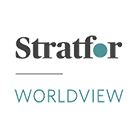Several previous personnel and ministry makeovers since Salman took the throne in January 2015 have emphasized that economic reform is the kingdom's top priority. Amid the first major rounds of government streamlining, the king named bin Salman the head of the Council of Economic and Development Affairs, adding to his other official titles such as minister of defense. In April 2016, the massive Vision 2030 economic reform plan was announced, and Mohammed bin Salman has been a public face for reform ever since.

Perhaps the most critical component of the economic reform program that bin Salman is spearheading is the move to put 5 percent of the state-owned Saudi Arabian Oil Co., or Saudi Aramco, up for an initial public offering. The sale, expected to bring in between $25 billion and $100 billion, will be the financial engine that helps power the country's economic reform. The money it generates will go into the Saudi Public Investment Fund, which will be used to pay for the country's strategic investments domestically and abroad, underpinning its economic reform, diversification and transformation initiatives.
Bin Salman's economic plans are ambitious — already, the Public Investment Fund has invested in Uber and put $45 billion into the SoftBank-led tech investment fund worth roughly $100 billion that was launched last month. And the key to success is maximizing Saudi Aramco's valuation so the kingdom can reap as much reward as possible from the IPO. State-owned oil companies often fare worse than their private brethren in financial markets because they present political risks, especially given the large contributions they make to the broader national economy. With this in mind, and under bin Salman's leadership, Riyadh has sought to maximize Saudi Aramco's value while reducing its tax burden.
To that end, Riyadh cut the oil company's tax obligation in March from roughly 85 percent to 50 percent. That move increases the company's revenue earnings by 333 percent, which, in theory, should triple the valuation of Saudi Aramco and its stock offering. Outside estimates suggest that this could have pushed the company's valuation to between $1 trillion and $1.5 trillion, giving the IPO a value of between $50 billion and $75 billion. However, bin Salman thinks that the worth of the country's crown jewel should top $2 trillion. So Riyadh is planning even more ways to increase it, including tax breaks for the company's heavily subsidized domestic fuel sales.
Though bin Salman has been actively lobbying for the IPO, he has faced internal challenges from allies and members of the royal family who are sensitive to any decisions, such as making a portion of Saudi Aramco public, that could cut their influence or could trim their share of the proceeds. In their eyes, the state-owned company's wealth belongs to the royal family. And beyond tension within the royal family, the crown prince has been butting heads with the Saudi Aramco leadership. Last week, The Wall Street Journal reported that Saudi Aramco's executives had briefed the Saudi Cabinet on the potential location of the IPO: The company's leadership wants to go public on the London Stock Exchange, because they see it as the least risky decision. Bin Salman, however, prefers to list the IPO on the New York Stock Exchange.
A New York-based IPO listing is indeed a much riskier move and could open up Saudi Aramco's shares to class-action lawsuits and potentially even damages under Justice Against Sponsors of Terrorism Act court cases. Moreover, Saudi Aramco would need to comply with the U.S. Securities and Exchange Commission's rules for oil companies, which require countries to report booked reserves. For the good of the IPO, Saudi Arabia has already allowed third-party reviews of its reserves (which is not an SEC requirement), but the country has long regarded the size, status and cost of its oil reserves as a state secret. The SEC also typically requires oil companies to move reserves into production within five years or remove them. For Riyadh, which intends to take a long-term view on oil production, that would not sit well.
But there are grander plans in the works when it comes to bin Salman's preference for a U.S.-based IPO. In addition to being in charge of economic reforms, bin Salman also holds Saudi Arabia's defense portfolios, and in both areas, his worldview is clearly aligned with Washington's. On the security front, Saudi Arabia has been leaning heavily on U.S. backing for counterterrorism and other initiatives to curtail Iran's influence in the region. This dynamic is playing out in the current Qatar-Gulf Cooperation Council crisis. Meanwhile, on bin Salman's 2016 trip to the United States, he made a raft of deals with U.S. tech companies (including Uber) while visiting Silicon Valley, signaling that he's interested in aligning with the United States economically as well.
To bin Salman, the Saudi Aramco IPO is not only a way to finance Vision 2030, but it is also a way to get closer to the United States, which is why he's pushing for a New York listing. That's a much weightier role for Saudi Aramco than its corporate leadership has seen for it thus far, and it comes with risks the company may not be eager to take. But ever since taking charge of Saudi Arabia's economic agenda, bin Salman has been on an almost uninterrupted ascent. And with his most recent promotion within the Saudi government, there is little to suggest that he will have trouble getting his way with Aramco.

